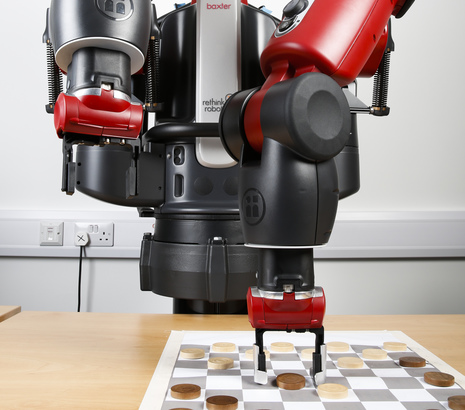
BSc (Hons) Computer Science (Cyber Security and Networks)
Learn to tackle cyber threats, design resilient networks, and secure systems in our cyber security and networks course. Gain hands-on experience and develop skills for a high-demand career in tech.
-
Typical offer: 120–128
Entry requirements -
Fees: £9,535 per year (UK)
Full details -
UCAS code: G491
-
Course length: Full time: three years
Find out more -
Location:
- University of Hertfordshire, Hatfield
-
Institute code: H36
Course overview
Computer networking is an essential part of modern life: from the networked applications that run on smartphones and the internet, to the secure systems demanded by global business. The BSc (Hons) Computer Science (Cyber Security and Networks) degree equips you with expertise in securing digital systems and designing robust networks. This course is ideal for students passionate about tackling cyber threats and ensuring data integrity. You’ll study modules on security management, artificial intelligence, and advanced networking while gaining hands-on experience with cutting-edge technology. Industry-informed teaching and practical projects prepare you for roles in cybersecurity, network engineering, and IT consultancy. Graduates leave with highly sought-after skills for careers in a rapidly evolving digital world.
Why choose this course?
Explore a future in cyber security and network management with our computer science degree, where you'll gain hands-on experience in defending digital infrastructures. Learn to design secure systems, tackle cyber threats, and become proficient in key technologies. Prepare for a rewarding career in a critical and rapidly growing field.
Tailored focus on cyber security and networks modules: Gain specialised skills through modules focused on data modelling, security management, and software architecture, preparing you to address emerging cyber threats in today’s digital landscape.
State-of-the-art facilities: On this degree you will access Spectra, our new home for the School of Physics, Engineering, and Computer Science, fully equipped with industry-standard software, hardware, and simulators for an immersive tech experience.
Become industry qualified: This computer science degree is accredited by BCS, the Chartered Institute for IT, ensuring your learning is always moving with the latest approaches, technology and practices.
Flexible learning: This course has an emphasis on cyber security topics, but you may choose to switch to another computer science course with a different focus after your first year. Other computer science routes we offer include a generalist course, cyber security and networks, and/or software engineering.
Work placement opportunities: Our dedicated Careers and Employment team will guide you through securing the right placement to gain industry experience. Recent students have held placements with major organisations such as Apple, BT, IBM, Intel, GSK, Microsoft, and Xerox, while others have chosen smaller, family-run companies closer to home. These experiences provide invaluable hands-on learning and industry connections.
Strong employment prospects: 93% of Herts graduates are in work or further study 15 months after graduation (Graduate Outcomes, 2021/22).
Professional accreditations
Accredited by BCS, the Chartered Institute for IT for the purposes of fully meeting the academic requirement for registration as a Chartered IT Professional (for first year entrants only).
Your future career
BSc (Hons) Computer Science (Cyber Security and Networks) graduates from Herts are well-prepared for careers in the tech industry, equipped with highly sought-after programming, data analysis, and cybersecurity skills. An impressive 93% of Herts graduates are in employment or further study 15 months after graduation (Graduate Outcomes, 2021/22).
Typical areas of work for computer science and cyber security graduates include:
- cyber security analyst
- software developer
- cyber security consultant
- data scientist
- IT consultant
- business analyst
After completing the computer science degree, you’ll hold a versatile skill set that leads to career opportunities spanning various sectors. You will also benefit from CV enhancing opportunities such as employer competitions, insight days, digital programmes, volunteering, student leadership roles, and achievement awards.
See what recent graduates are up to

Hafsa Rahman
IT Application and System Support at Optoma Technology
University experience
Hafsa's time as a student at the University helped ready her for employment in many ways. Her Computer Science degree facilitated a broad spectrum of transferable skills, from teamwork and multitasking to time management and communication skills, which Hafsa believes were invaluable when job searching.
She says, 'The University organised job fairs where I had the opportunity to meet many top employers and had the chance to ask them many questions face to face.'
These practicable and social aspects of her studies exposed Hafsa to employers, presenting tangible links and networking opportunities that would be beneficial after graduating. She credits her time at Herts with helping her gain confidence as well as boosting her interview skills.
Hafsa advises current students looking to pursue a similar career path to ensure they thoroughly investigate what jobs are out there before graduating and identify what jobs they would excel in. She recommends looking out for graduate schemes and getting involved in as much professional experience as possible during university. Preparation is key and university study provides the skills, resources and opportunities to best prepare students for entering employment.
The future
Setting her sights on further development, Hafsa is planning to return to the University of Hertfordshire to do a part time MA in Computer Science, allowing her the flexibility to continue working full time.
What you'll study
In our cyber security degree you will learn about different aspects of networking: protocols, network design, the tools and services for constructing distributed applications, and network security – how to defend against cyber-attack. In your first two years you will concentrate on building a broad integrated foundation, with your specialism in Networking building on this foundation.
In your first year you will learn the foundations of the subject including topics such as an overview of the field, programming, modelling, and computing platforms.
During your second year you will deepen your understanding and develop more advanced skills. There are technical modules on software development, programming, databases, operating systems and networks, plus two options.
For your final year you will study computer security and project planning, specialist modules in network protocols & architecture and cyber security, plus two options. Finally, you will undertake an individual project in your chosen specialism, typically an extensive piece of practical work.
What if I need support?
You’ll have a personal tutor to guide you throughout your course, all the way to graduation. If you need additional support during your time with us, rest assured that we’ve got you covered. For help with study skills, including referencing, essay writing and presentations, you’ll have access to our academic support services. You can attend workshops, 1-to-1 sessions and online tutorials. Both our LRCs run drop-in study skills sessions. And the best thing is, it’s all free.
Where you'll study
Your main campus is College Lane, this is where the creative arts, science and health-related subjects are based. This means you’ll share the campus with future nurses, scientists, artists and more. You can use the common rooms to relax with friends, work out in the 24-hour gym or have a drink in our on-campus pub or cafes. We also have restaurants for you to eat in or grab something on the go. Our Learning Resources Centres are open 24/7, which means you can study whenever suits you best. Want to pop over to the other campus? You can take the free shuttle bus or walk there in just 15 minutes.
Learn in our new state-of-the-art building called Spectra, where you’ll experience a range of experiential learning zones. You will have access to modelling, simulation and research labs, our Merlin Flight Simulator and automotive workshop (complete with electric vehicle facility), wind tunnel, welding bay and controls testing suite.
You will also benefit from our Academic Support Hub, which is aimed at helping you build your employability and academic skills. Plus, have access to industry mentors who will provide you with pastoral support, vocational guidance, and career progression opportunities.
Spectra also provides space to collaborate, with plenty of workshops, social and meeting spaces available. Even better, the building has been designed with the University’s net zero carbon target in mind, and forms part of our plan to replace or upgrade older sites that are energy inefficient.
Who you'll learn from
At Herts, you will be taught by highly qualified staff, many of whom are PhD or other advanced degree qualified, in addition to their significant research, teaching or professional experience. Many have backgrounds in industry and are actively engaged in cutting-edge research, keeping the course aligned with the latest advancements in areas like artificial intelligence, software development, and cybersecurity.
The teaching team uses real-world projects and industry case studies to enhance your learning, sharing insights gained through collaborations with organisations such as Apple, Microsoft, and BT. Guest lectures and workshops further enrich your learning, offering exposure to the latest trends and innovations. Together, the team ensures your education is dynamic, practical, and future-focused.
Check out our student blogs
How we support our students
At the University of Hertfordshire, we want to make sure your time studying with us is as stress-free and rewarding as possible.
We offer a range of support services, from childcare to counselling, ensuring that you make the most of your time at Herts and can focus on studying, having fun, and have the support you need.

Student Blogs
Dilek Selin - A Typical Day
A typical day
A typical day would start off with getting up, catching the University UNO bus and heading towards the forum canteen (they stop serving breakfast around 11:00 but this often changes) to grab a full English breakfast and a coffee at Starbucks (yes, we have a Starbucks on campus!!). During this time, I would regularly check my emails or look at my timetable for the day ahead to find the rooms and prepare my notes for the relevant lectures and tutorials. Generally, after finishing my breakfast I would either grab a meal deal for lunch at the Student union shop since it gets busy towards lunchtime or even because I wouldn’t have time to grab food if I had back to back classes, so having prepped lunch with me or just snacks if I wasn’t feeling too hungry – bringing along food with me was always a must.
Later, if I ever had breaks during my day, I would go to the Learning Resource Centre (LRC) aka the university library. If I didn’t have any upcoming assessments, I would check the active students timetable to see if there were any sports events going on and take part in those sessions where I could participate in sports for free with other students at the uni. After that, I would go to my next classes and then finally when It was home time, I would go back to the bus stop and head home. Since I was a commuting student, by the time I got back home I had enough time to prepare myself for the next day or just wind down from the events of the day. Every student would get at least one day off in the week. For me, in my first year, this was Wednesdays. Including the weekends, I had plenty of time to run errands, book appointments for health checks and even catch up on studies thanks to the extra day off. For the students who lived on campus, they would often take their day’s off as an opportunity to set it as a laundry day!

Student Blogs
Dilek Selin - Things you should know
Things you need to know before studying Computer Science at Herts
It’s okay to not know what you want to do, you don't have to have everything figured out now and as long as you have a direction or a path, stick to it and take new opportunities that present themselves to you, you won't regret taking up on new things and going out of your comfort zone. For me, the best thing I did was take part in a hackathon. The fintech company that was hosting it later offered me my placement, it’s one of those things that you don't expect to happen to you but you sometimes have to make your own luck in these things and research and throw yourself out into the deep end because the challenges we face now are only going to make us stronger for the challenges we are to face ahead.
In my first year everyone was fed in through the same stream, we studied four modules (modules are like subjects), so we took, programming- you get to learn about coding and different programming languages. I learnt about Java but I believe they have introduced Python as well, the second module was Platforms for computing -essentially this module covered the hardware side of computing and we learnt about logic gates which tie in with the content that the electronic engineering students also study, so even though there's a slight overlap it gives us more depth in our subject area and also a chance to explore computing aspects. The third module you'll study at level four (level four being the first year) is models and methods of computing, this was the maths-based module and you'll be exposed to theorems and truth tables and binary, it really will shape your understanding in computing logic. And finally, Human dimensions of computing, in this module you'll get the chance to work in a group and put your presentation skills to practice, learning about the ethical side of computer science. All four of these modules are further explored in your second-year studies, where the knowledge you gained will be expanded in the sense where one of each of those four modules will link to your second-year modules. Later in your final year, you get to choose a specialised area such as Software Engineering, AI, Networks and Cyber Security. You might be thinking how I know which one to pick, luckily throughout your academic journey, you'll be given tasters to each of the streams. For example, in my second year I took up AI and robotics modules which I really enjoyed- up until then I was convinced, I'd stick with the software engineering stream, but If I had never tried, I would have never known!

Student Blogs
Jack - A day in the life as a computer science student
Hello 👋
As a commuting Computer Science student, I normally leave around an hour before my day’s lectures and practicals start and arrive at the Park and Ride car park before taking the bus to the College Lane campus 🚌
For my second-year timetable, practicals are allocated to Monday and Tuesday, whereas lectures are allocated to Thursday and Friday, with Wednesday being a study day for reading up on the lecture material. During my lectures, I will normally take notes on my laptop so I can read over them later on and in my practicals, I will either use my laptop or the desktops in the computer labs depending on what software we need for the practical.
After finishing the lecture/practical, I normally have lunch in the Forum Restaurant with my friends and discuss the day’s work. Finally, once I finish for the day, I return to the Park and Ride and go home where I can review my notes and reinforce what I learned during the day.
Facilities
In the computer labs, the desktops have a range of useful software already installed including IDEs (Integrated Development Environments) such as BlueJ (for Java development), IDLE (for Python development) and other tools such as Logisim (for creating circuits using logic gates and visually how they work) and SQL Developer (for interacting with databases and executing SQL commands). Using these computers, I can complete all the practical work which is set by the lecturers so I can apply the theory from the lectures.
Projects
Currently, in my spare time, I am working on a dungeon crawler game made in Python using the Arcade library (which can be found at https://github.com/Aspect1103/Hades). This has needed various features to get it to work including map generation, player control, enemy AI, collectables and so on.
Recently, I just finished implementing some C++ extensions using the Python C-API to speed up the map generation granting me a five times speed increase and the breadth-first search vector field (which is used for navigating the enemies towards the player) granting me a seventeen times speed increase. My next steps are to further optimise the map generation and vector field and to rewrite the enemy AI making it faster and more intelligent. Creating this project has greatly improved both my project management and problem-solving skills which I can use in my modules this year to complete the tutorial exercises, coursework, and exams.
Entry requirements
The University of Hertfordshire is committed to welcoming students with a wide range of qualifications and levels of experience. The entry requirements listed on the course pages provide a guide to the minimum level of qualifications needed to study each course. However, we have a flexible approach to admissions and each application will be considered on an individual basis.
| Typical offer (UCAS points) | (enter tariff range) |
|---|---|
| Typical A Level offer | (enter range) |
| Typical IB offer | (enter range) |
| Typical BTEC offer | (enter range) |
| Typical T Level offer | (enter range) |
| GCSE | EG: Grade 4/C in English Language and 4/D Mathematics |
| Access courses | EG: An overall merit profile in 45 credits at Level 3. |
| Additional information | Find out more about our standard and contextual Undergraduate Entry Requirements. |
| English language | All students from non-majority English speaking countries require proof of English language proficiency, equivalent to an overall IELTS score of 6.0 with a minimum of 5.5 in each band. If you do not have the required IELTS or equivalent for direct entry on to your degree programme, our Pre-sessional English and International Foundation courses can help you to achieve this level. |
|---|---|
| Additional information | Find out more about International Entry Requirements. |
| Typical offer (UCAS points) | 120–128 |
|---|---|
| Typical A Level offer | BBB–ABB |
| Typical IB offer | 120–128 UCAS points from a minimum of two HL subjects at grade 4 or above |
| Typical BTEC offer | DDM |
| Typical T Level offer | 120–128 UCAS points Accepted T Levels: Design Survey and Planning for Construction; Design Production, Design and Development; Education and Childcare; Healthcare Science; Health; Science; Digital Support Services; Digital Business Services; Onsite Construction; Building Services Engineering for Construction; Accounting; Design and Development for Engineering and Manufacturing; Engineering, Manufacturing, Processing and Control; Finance; Maintenance, Installation and Repair for Engineering and Manufacturing; Management and Administration; Agriculture, Land Management and Production; Legal Services. |
| GCSE | Grade 4/C in English Language and Mathematics. |
| Access courses | Overall merit profile in 45 credits at Level 3 |
| Additional information | Find out more about our standard and contextual Undergraduate Entry Requirements. |
| English language | All students from non-majority English speaking countries require proof of English language proficiency, equivalent to an overall IELTS score of 6.0 with a minimum of 5.5 in each band. If you do not have the required IELTS or equivalent for direct entry on to your degree programme, our Pre-sessional English and International Foundation courses can help you to achieve this level. |
|---|---|
| Additional information | Find out more about International Entry Requirements. |
Ready to apply?
UK and EU applicants with pre-settled/settled status in the UK
| Start date | Study type | Apply |
|---|---|---|
| September 2025 | Full time | Apply via UCAS |
| Full time with placement year | Apply via UCAS | |
| Full time with study abroad year | Apply via UCAS | |
| September 2026 | Full time | Apply via UCAS |
| Full time with placement year | Apply via UCAS | |
| Full time with study abroad year | Apply via UCAS |
International and EU applicants without pre-settled status in the UK
Fees and funding
At Herts, we’re dedicated to providing world-class teaching supported by industry-level facilities and incredible social spaces. We believe cost shouldn’t be a barrier to higher education, and we strive to keep both our standard and additional costs as low as possible.
| Study type | Fees | |
|---|---|---|
| UK students | Full time | £9,535 for the 2025/2026 academic year |
| EU students | Full time | £15,965 for the 2025/2026 academic year |
| International students | Full time | £15,965 for the 2025/2026 academic year |
Tuition fees are charged annually. The fees quoted above are for the specified year(s) only. Fees may be higher in future years, for both new and continuing students. Please see the University’s Fees and Finance Policy (and in particular the section headed “When tuition fees change”), for further information about when and by how much the University may increase its fees for future years.
| Scholarships, grants and bursaries | Depending on your circumstances, you may be eligible for a non-repayable scholarship, grant or bursary to support your studies. |
|---|---|
| Disabled Students' Allowance | The Disabled Students’ Allowance can cover any study-related costs you have because of a mental health problem, long term illness or any other disability. |
| Student loans | Find out about securing a student loan, from how much you could be eligible for to when you need to start making repayments. |
| Accommodation costs | We offer a great choice of student accommodation, on campus or nearby in the local area, to suit every student budget. |
| Additional course fees | Read more about additional fees in the course fact sheet. |
More about the course
| Course fact sheets | |
|---|---|
| BSc (Hons) Computer Science (Cyber Security and Networks) | Download PDF |
| Programme specifications | |
|---|---|
| BSc Honours in Computer Science and Information Technology | Download PDF |
| Additional information | |
|---|---|
|
Applications open to international and EU students |
Yes |
Course length |
Full Time, 3 YearsSandwich, 4 Years |


